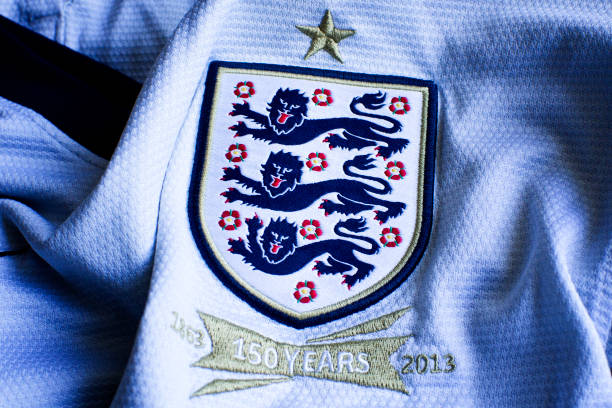
England holds a prestigious place in football history as the birthplace of the modern game. While various forms of football existed across different cultures, it was in England that the sport was codified, structured, and developed into the game we recognize today. The creation of standardized rules, the formation of The Football Association (FA), and the establishment of major competitions such as the FA Cup transformed football into a global phenomenon. In this article, we will explore how England shaped modern football through its pioneering rules, organization, and competitive framework.
1. The Birth of Modern Football: The Football Association (FA) and Standardized Rules
Before the formation of The Football Association in 1863, football was played with varying rules across England, with some versions resembling rugby more than modern football. Different schools and communities had their own interpretations of the game, which created confusion and inconsistencies.

Key Developments:
- In 1863, The Football Association was founded in London to establish uniform rules for the game.
- The FA’s Laws of the Game became the foundation of modern football, eliminating elements of rugby, such as running with the ball in hand and violent physical play.
- The introduction of the offside rule, which has evolved over time but remains a core part of football strategy.
- The FA’s rules led to the division between rugby and football, allowing each sport to develop independently.
2. The First Football Clubs and Competitive Matches
With a standardized rule set, football clubs could now compete in organized matches. The rise of club football in England laid the foundation for the professional era.
Key Developments:
- Sheffield FC (1857): Recognized as the world’s oldest football club, Sheffield FC played an instrumental role in developing club football.
- 1866: The first match played under FA rules took place between Barnes and Richmond, marking a significant milestone.
- 1871: The introduction of the FA Cup, the world’s oldest national football competition, further solidified football’s status as an organized sport.
3. The Offside Rule: A Game-Changer in Football Strategy
One of the most defining aspects of modern football is the offside rule, introduced in the original FA Laws of the Game. The rule has been modified over time, but its presence has had a profound impact on the way football is played.

How It Shaped Football:
- Early versions were stricter: Initially, a player was offside unless there were at least three defenders between them and the goal.
- 1925 amendment: Reduced the number of defenders required to two, making the game more attacking and increasing goal-scoring opportunities.
- Modern modifications: Introduced the concept of “active” and “passive” offside, refining how the rule is enforced and interpreted.
4. The Introduction of Referees and Discipline in Football
To ensure fair play, England introduced the concept of referees and disciplinary measures.
Key Developments:
- In 1878, referees were introduced to oversee matches and enforce rules.
- Red and yellow cards were later introduced in 1970 to clearly communicate fouls and discipline players.
- VAR (Video Assistant Referee) was first implemented in the English Premier League (EPL) in 2019 to assist referees in making accurate decisions.
5. The FA Cup: The Blueprint for Knockout Competitions
The introduction of the FA Cup in 1871 provided a competitive structure that has been replicated worldwide.
How It Shaped Global Football:
- The knockout format of the FA Cup was later adopted by the UEFA Champions League, Copa del Rey, and other domestic cups worldwide.
- The tournament has allowed smaller teams to compete against elite clubs, showcasing the unpredictability and excitement of football.
6. England’s Influence on International Football and FIFA
England’s codified rules served as the foundation for FIFA’s establishment in 1904. The first international football match, played in 1872 between England and Scotland, set the stage for international competitions like the FIFA World Cup and the UEFA European Championship.
Key Contributions:
- The FA’s rules were widely accepted, forming the basis of football’s global regulatory structure.
- England was instrumental in establishing the World Cup, although it initially refused to participate in FIFA tournaments until 1950.
7. The Birth of Professional Football in England
Before 1885, football was strictly an amateur sport, meaning players were not paid. However, the growing popularity of the game led to the inevitable introduction of professionalism.
Key Developments:
- 1885: The FA legalized professional football, allowing players to be paid for their performances.
- 1888: The English Football League (EFL) was established, the first-ever football league system in the world.
- Premier League Formation (1992): The EPL became the most-watched and commercially successful football league, setting the standard for football leagues worldwide.
Conclusion
England’s impact on modern football is unparalleled. From establishing the rules of the game to pioneering competitive tournaments, officiating standards, and professional leagues, England’s contributions have shaped the global football landscape. Without England’s role in structuring the sport, football as we know it today would not exist.
SUGGESTED FOR YOU
Jade Shekells’ Shocking Rise: 5 Key Insights on Her England Six Nations Call-Up
As the birthplace of football’s most fundamental rules, England’s legacy continues to thrive through the Premier League, the FA Cup, and the continued evolution of the sport. Whether you are a casual fan or a die-hard supporter, every football match played today owes a debt to England’s pioneering contributions.
Did You Know?
- The FA Cup final was the first match ever broadcast live on radio in 1927 and later on TV in 1938.
- England’s 1966 World Cup victory remains the country’s greatest international football achievement.
- The Premier League generates billions in revenue and is home to the world’s best footballers, further solidifying England’s influence on the modern game.
Want to learn more about football’s history? Check out our in-depth articles on the FA Cup, the English Premier League, and Scotland’s contributions to the game.









